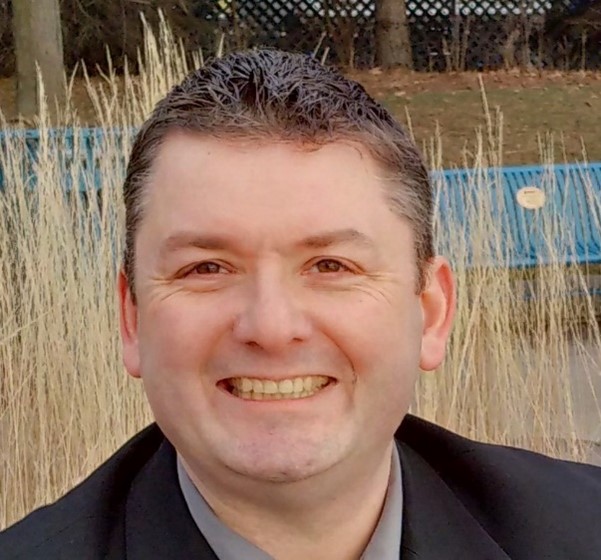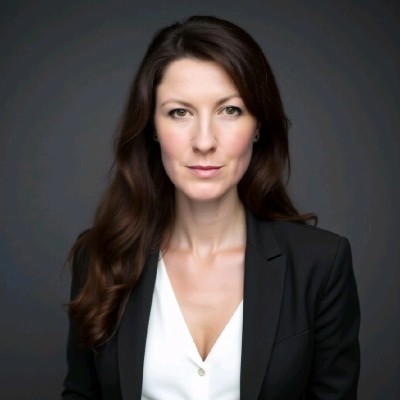As we head into the second half of 2025, organizations are being tested like never before. From surging AI adoption and geopolitical instability to ESG compliance, workforce reshaping, and digital reinvention, change is no longer episodic; it’s overlapping, continuous, and personal. To explore how the change management profession is evolving in this complex environment, we spoke with Association of Change Management Professionals (ACMP) Board of Directors members Rich Batchelor, president of the ACMP Board of Directors; Alexandra (Allie) Hartman, member, ACMP Board of Directors; and Isolde Kanikani, vice president, global board of directors, ACMP.
The Overlapping Reality: Why Change Management Can No Longer Be Linear
“We’re seeing a perfect storm of transformation,” said Allie Hartman. “AI, workforce restructuring, digital transformation, it’s all happening simultaneously. What’s different this year is the pace and layering. Organizations aren’t rolling out one initiative at a time anymore. They’re changing systems, processes, culture, and structures all at once, often while reducing their workforce.”
Rich Batchelor echoed the sense of urgency: “With geopolitical instability and the surge in mergers and acquisitions, we’re seeing a lot more company rationalizations. Some of this is about survival, retaining intellectual property, and consolidating services. This also means employees are living in a constant state of disruption. Organizations must invest in change readiness and resilience. It’s not just about managing transitions, it’s about prepping people to expect them and creating agile mindsets that can flex with the future.”
From Reactive to Proactive: Embedding Change Capability
According to Allie, this moment requires a shift in mindset: “Organizations need to move from reactive to proactive change strategies. That starts with embedding change capability across the business, not just on a project basis. Change management has to be a strategic partner, co-creating change from the beginning.”
That means building organizational muscle in areas like data and AI literacy, adaptive leadership, and psychological safety. “Leaders must get better at listening — measuring energy and sentiment, not just productivity — and simplifying where possible,” she said.
AI as an Accelerator, Not a Replacement
For Allie and others, generative AI is transforming how change gets done, but human-centered design still leads: “We’re using AI to brainstorm strategies, generate audience-specific content, identify risk, and tailor interventions. It’s not just about efficiency, it’s about personalization at scale. It gives us back time to lead, coach, and connect.”
Isolde Kanikani emphasized the strategic potential of AI, calling it “a tool and way of working.” She added: “In 2025, we’ll see deeper use of AI agents, predictive analytics, and organizational network analysis (ONA). These tools help identify resistance points and deliver tailored support, crucial for managing change across distributed teams.”
The Cultural Shift: From Training to Transformation
For Rich, the future of change is deeply human. “Technology is only part of the picture. I’m encouraging clients to invest in emotional wellbeing and create cultures of compassion, curiosity, and agility. Change isn’t just about systems, it’s about people, and people need psychological safety and support to grow.” Allie agrees: “The future of change is not just faster, it’s smarter, more inclusive, and deeply personal.”
Isolde also sees a shift away from linear training models: “We can’t keep applying the same 20-year-old methods when the world looks completely different. We need to innovate, scale, and personalize how people learn and adapt. Change management must move from one-off interventions to continuous, embedded practices.”
What’s Next: Resilience, Maturity, and Human-Centered Design
In an article on LinkedIn, Isolde outlined nine key trends reshaping the profession from climate action to hybrid work and democratized change capability. Among them: “Change management is no longer about managing projects. It’s about embedding resilience, agility, and strategic foresight into the DNA of organizations.”
One theme stood out across all respondents: resilience. “Organizations are managing more change than ever,” Isolde wrote. “Any organization that can innovate beyond traditional change plans will be at a huge advantage. That means less fatigue, better outcomes, and real, embedded value.”
Final Takeaways for 2025
- Embed Change Everywhere: From onboarding to leadership development, build change capability at every level.
- Use AI Thoughtfully: Pair tech with human touch to create smarter, scalable support systems.
- Design for People: Center emotional wellbeing, clarity, and inclusion in every transformation.
- Grow Change Maturity: Move beyond isolated initiatives, and align change with culture, systems, and strategy.
- Lead With Listening: Measure sentiment, not just performance. Create space for feedback and co-creation.
In 2025, the organizations that thrive won’t be the ones with the flashiest tools or the biggest budgets. They’ll be the ones that can flex, listen, respond, and bring their people with them every step of the way.
Learn More About the ACMP Board Members Referenced Above
 Rich Batchelor has been successfully delivering change for over 30 years. He has consulted, coached, and educated many across the globe. He regularly supports, advises, and guides executives and organizational leaders to realize their potential. He enables them to navigate cultural transformations, including shifting mindsets for diversity, equity, inclusion, and belonging, and helps prepare them for the unexpected.
Rich Batchelor has been successfully delivering change for over 30 years. He has consulted, coached, and educated many across the globe. He regularly supports, advises, and guides executives and organizational leaders to realize their potential. He enables them to navigate cultural transformations, including shifting mindsets for diversity, equity, inclusion, and belonging, and helps prepare them for the unexpected.
He has a master’s in change management and a bachelor's degree in mathematics and statistics. He is certified in project management, process improvement, facilitation, HR, coaching, counselling, and psychotherapy. He is also a Certified Lego® Serious Play® Facilitator and Workshop Designer, certified in facilitating organizations through volatility, uncertainty, complexity, and ambiguity (VUCA) and an accredited emotional culture deck (ECD) consultant “elephant rider.”
He is a founding member of the Association of Change Management Professionals (ACMP) and is grateful to serve the association members as part of the global board and current president.
 Alexandra "Allie" Hartman is a seasoned change management strategy lead, specializing in human-centered, data-driven, and AI-supported strategies for large-scale digital transformations. With over 10 years of experience in change management and analytics, Allie thrives in dynamic environments where she can make a meaningful impact. She has led the development and execution of data-driven and AI-supported change management strategies that optimized efficiencies and delivered tangible solutions and frameworks, driving measurable business value.
Alexandra "Allie" Hartman is a seasoned change management strategy lead, specializing in human-centered, data-driven, and AI-supported strategies for large-scale digital transformations. With over 10 years of experience in change management and analytics, Allie thrives in dynamic environments where she can make a meaningful impact. She has led the development and execution of data-driven and AI-supported change management strategies that optimized efficiencies and delivered tangible solutions and frameworks, driving measurable business value.
Allie holds multiple master’s degrees in psychology, survey research, and business analytics and project management, underscoring her strong foundation in both human behavior and data-driven decision-making. As a member of the Association of Change Management Professionals (ACMP) Global Board of Directors, she contributes to advancing the field of change management, advocating for best practices, and shaping the future of the profession.
She is a Certified Change Management Practitioner (CCMP™), a Master Change Management Professional (MCMP™), and trained in Prosci, Kotter, and Agile Change Leadership. Passionate about collaboration and inclusivity, Allie works to empower teams and foster a culture of recognition while leveraging AI to support innovation and data-driven decision-making in change initiatives.
 Isolde Kanikani is a seasoned business leader and transformation expert with deep experience in strategic organizational, people, and digital change. With a strong background in business management, operations, human resources, and advisory leadership, she has led organizations through complex transformations that align strategy with practical, hands-on execution.
Isolde Kanikani is a seasoned business leader and transformation expert with deep experience in strategic organizational, people, and digital change. With a strong background in business management, operations, human resources, and advisory leadership, she has led organizations through complex transformations that align strategy with practical, hands-on execution.
She is the director of the OCM practice for strategic markets at Kyndryl, founder of I:DNA which drives change capability development in organizations, and co-founder of Vinchi, which harnesses the power of AI and knowledge management for scaled organizational development. She has the privilege to be the current vice president board member at ACMP as well as an executive board member of the Neuro Diversity Foundation.
Isolde is deeply committed to advancing change management and organizational development practices. She holds both a master's in business and a master’s in human resource management. Her passion for development and growth mindset is evident in her extensive volunteer work and numerous certifications, which she integrates into her practice to drive meaningful outcomes across all areas of her life.
A passionate speaker and educator, Isolde regularly shares her insights at global conferences and masterclasses. Covering themes such as governance, value realization, and organizational change capability, alongside the key integration of these themes into a growing foundational layer of technology and AI. She is the author of several published works and the creator of ChangeOps, a strategic organizational change management approach and newsletter.